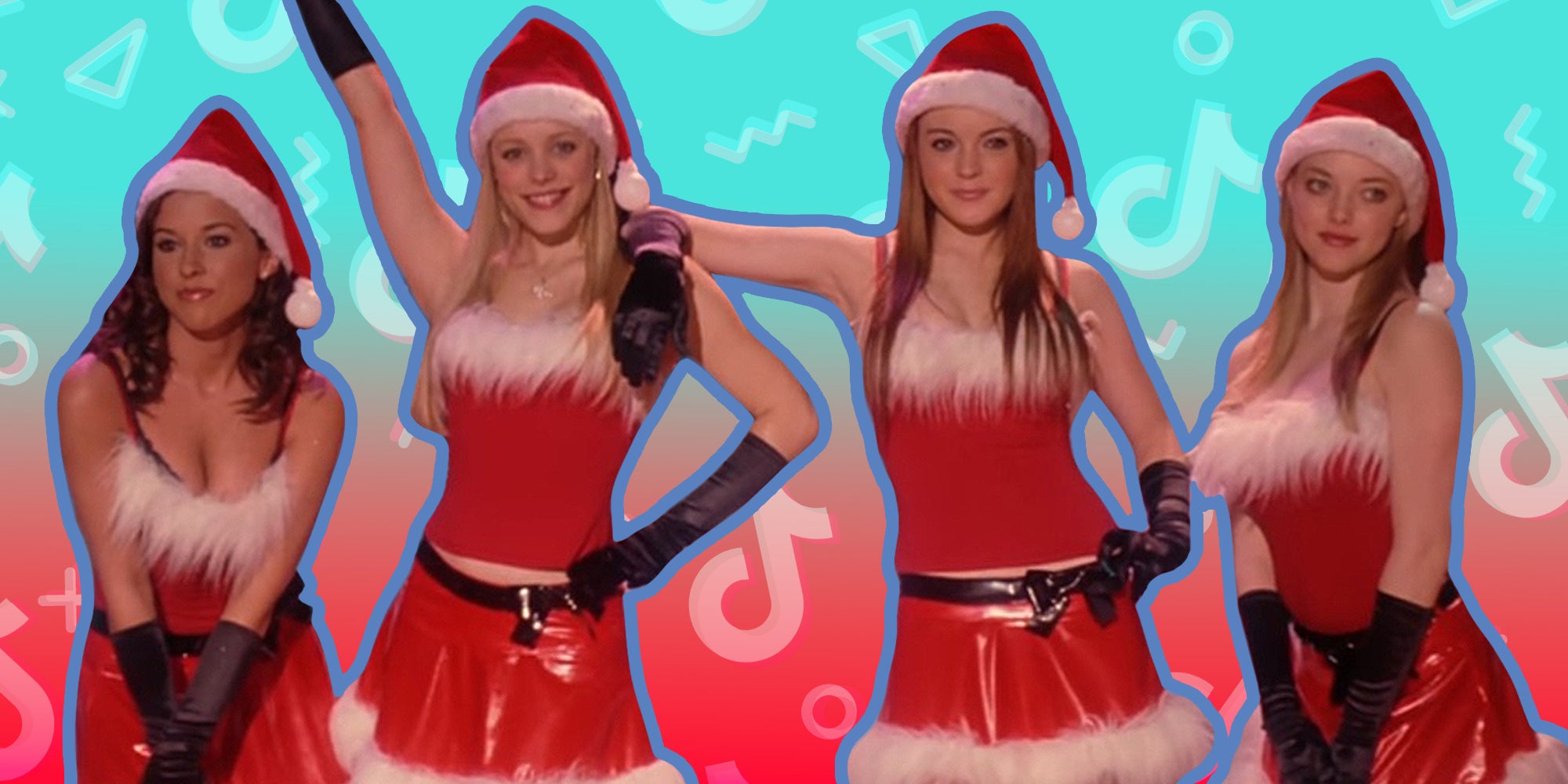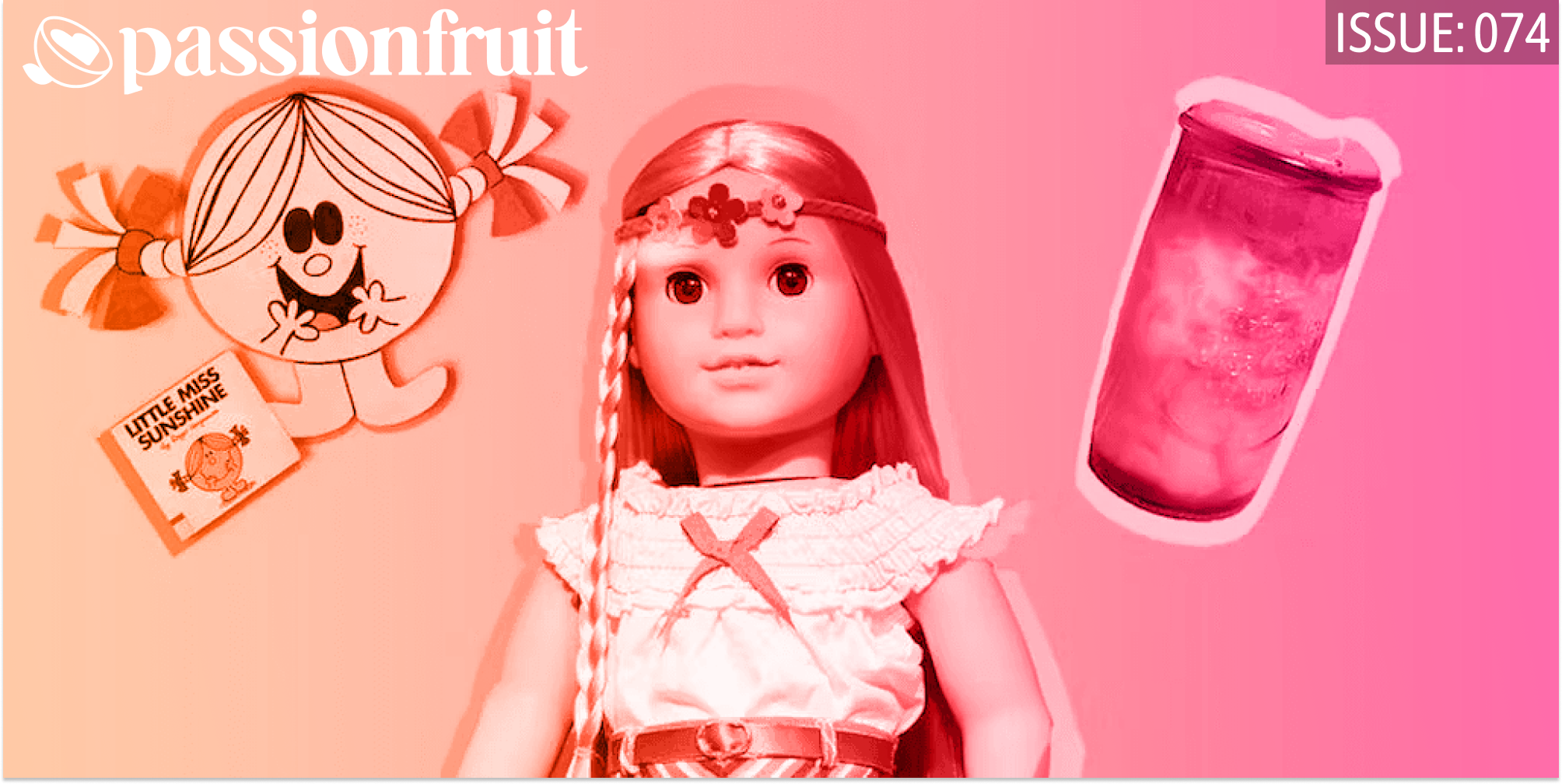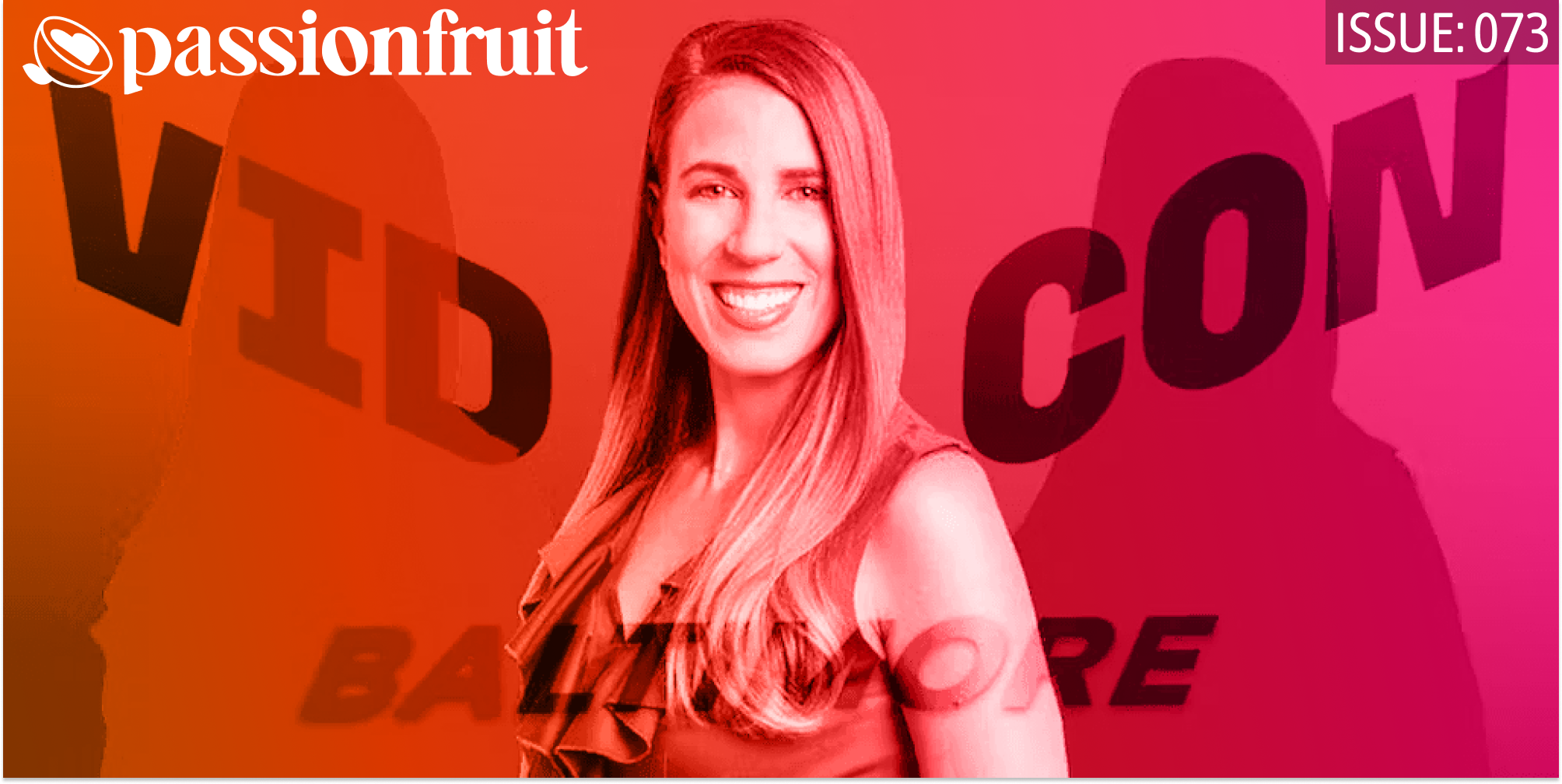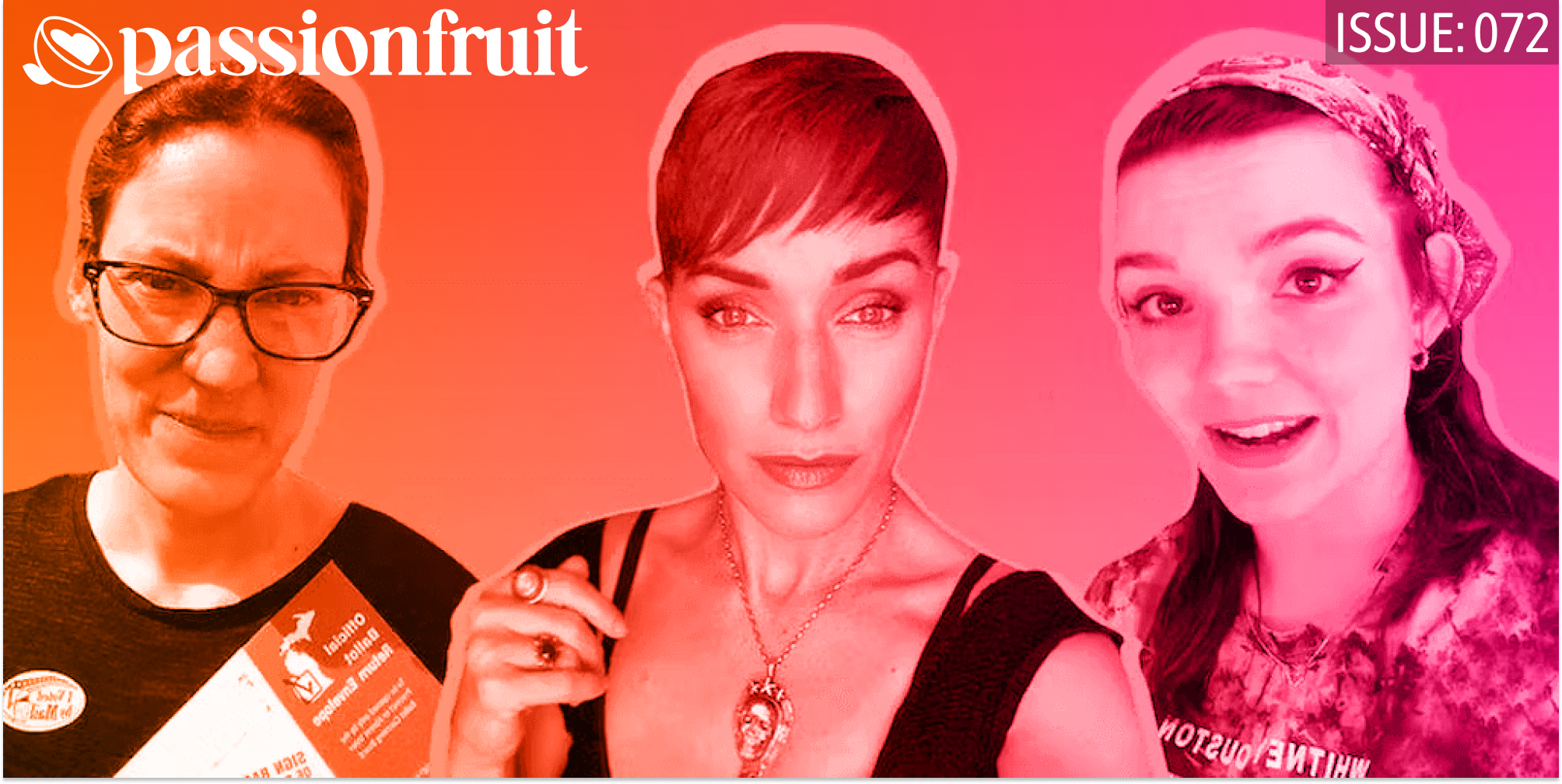CREATOR NEWSLETTER
Issue #174 | Oct. 5, 2023
Anyone catch the Reel Big Fish reference in the subject, anyone? Bueller? That’s another reference to an even earlier cultural touchpoint, back when our media was more of a monoculture than a multiverse. There was a time when there were only so many movies on the shelf at Blockbuster or the library, only so many songs you could fit in an hour of radio programming. Channels on a TV, films in a theater, CDs on a rack…you’ve heard it all before, you either get it or remember it. Media in all its forms before the internet kinda sucked for a whole host of exclusionary, gate-kept reasons, but we all pretty much knew what all of it was.
If you’ve never read “I Want My MTV: The Uncensored Story of the Music Video Revolution,” you should. Once upon a time there was no such thing as Viacom or Nickelodeon or VH1 or MTV, somebody (Robert Pittman) came up with the idea in the late 1970’s, a time when most TVs were still receiving signals over literal radio antennas. In cities and suburbs though, there were a ton of government subsidies for companies laying coaxial cable to our homes (now being replaced with fiber optic, but same general principle).
Pittman realized there was going to be a new media platform (cable TV) because he worked in an older, similar platform (broadcast, namely WNBC in NY). He purchased access to a satellite uplink facility on eastern Long Island, asked labels to send him promo videos for their artists, and then started buying advertisements on local cable networks across America instructing teenagers to call their cable company and scream “I WANT MY MTV” into the phone. When The Police told you to do something in 1983, you did it.
Cable companies had their switchboards jammed, and the suits who decided what networks went in the cable package had to call Pittman and pay him to get MTV on their line up (they were also sold a new children’s network: Nickelodeon).
You might be wondering what the birth of cable television has to do with modern digital creativity, but once you see it you can’t unsee it. MTV, a subsidiary of Viacom, actually pioneered the idea of reality TV, normal people doing normal (or abnormal) stuff. The obvious one is The Real World, the less obvious one is Real Life, but they also launched The Osbournes, The Tom Green Show, Jackass, a slew of awful dating shows, Teen Mom, and Jersey Shore.
This past week, Jackass’ Steve-O and Jersey Shore’s Snooki offered some radical pay transparency from their respective first seasons on the network. Snooki made $200 a week for an entire summer working at a t-shirt store, nothing else. Steve-O made just $1,500 post-tax for a variety of harmful and stupid stunts. MTV has infamously categorized its on-air talent as freelancers who aren’t eligible for benefits and get paid next to nothing, if at all. I know this, because I personally appeared on the network a number of times through my teens and my early 20s and got paid maybe $2k in total.
THE COMMENTS SECTION
“They paid us $200 a week and that’s what we got.”
-Snooki (@snooki) on her Jersey Shore Season 1 appearance fee, via Steve-O’s Wild Ride!
MTV’s logic was “this is a great platform for you to build an audience, and if you don’t want to do it for free then there’s a line of kids around the block who would take this gig in a heartbeat.” This, unfortunately, is how the platforms operate as well.
You give them free content, they make gobs of money off the attention that content draws. For the select few of you that garner so much attention you become hard to ignore as stars in your own right? You’ll get contracts, creator deals, sponsors, invites to MTV parties, and a chance to keep building their brand into something that makes money.
But the platforms–like MTV before them–they don’t need your particular brand. They just need whatever keeps people scrolling, clicking, liking, subscribing, tuning in, zoning out. If you’re the thing now that’s great and you should capitalize on it, but don’t underestimate post-viral depression. Once you’ve tasted some amount of algorithmic attention, it can feel deeply lacking once the tide ebbs.
I don’t say this to discourage you, I say this to wisen you up a bit. It’s rough out there for people making things in an attention economy, but it’s even more rough when your audience is tied to a single platform with black box algorithms. They give you free exposure and audience until they don’t, you can (maybe, with immense luck and skill) turn that into a sustainable, monetizable brand and business.
But if that’s the deal, then it’s on you to figure out that last part. Selling out is fine (good, even!), but who you partner with and the terms of that deal can have major impacts on your ability to continue owning your own success and content. Even digital superstars like Mr. Beast and Whitney Cummings are still learning this lesson the hard way, and if they’re finding themselves screwed out of money, just imagine how many other smaller sharks are out there waiting for the rest of us.
So look, the basic principle of digital copyright law is if you make something on your own and nobody is paying you to make it, you own it. If you upload it somewhere, you are generally giving that platform the right to make money off it in exchange for hosting it, a “license” that you didn’t read when you clicked “I Accept The End User License Agreement.”
At a certain point, the platform may give you a cut of the money they’re making off you, but they can change the terms of that deal whenever they want, and they aren’t going to ask first or negotiate later. If someone (a brand, a company, a network, a platform, another creator) wants to give you money to do something or use something you’ve made, you need a contract, and if you need a contract, you probably need a lawyer to look at it before you sign it.
I wish I knew that before I accepted sub-minimum wage to go on MTV in 2007. I also wish things had changed more broadly since then, but there’s a reason most of MTV’s programming now primarily consists of seemingly endless, multi-day marathons of Ridiculousness, a show that feels like being trapped in a windowless room with 3 of the worst people you know cackling at their dull FYFs. According to Reddit, a viral clip on the show was worth $200 a few years ago. I can’t imagine it’s gone up much since then. I digress, but not by much.
New platforms always find new ways to exploit a new generation of hungry stars behind a veneer of opportunity; it’s on you to make sure you protect your own copyright as doggedly as the studios do. If a deal seems too good to be true it probably is, and again, if there’s money involved, it’s worth spending some of it on a lawyer before you sign anything.
On that note, we’ll have more legal resources in the coming weeks and months on Passionfruit for those of you who are ready for that kind of help, and if you have questions and are fine not receiving actual, binding legal advice from us, because–with the exception of Franklin who is a freelancer here, pot meet kettle, I know–we are not lawyers and nothing we ever say will constitute legal advice, shoot us a DM on one of the various platforms at the bottom of this email. We’ll give it to someone who knows how to answer it.
– James Del, Publisher
NOTED BY LON HARRIS
Now You Can Watch ‘Mean Girls’ on TikTok. Here’s Why Creators Should Care.
In vertical video, cut up into 20+ pieces, just as the filmmakers intended.
By Lon Harris, Passionfruit Contributor

IN THE BIZ
- Patreon announced major redesigns and updates to its platform in an overall shift away from being known only as a “membership” platform to being a full-fledged social media platform. This includes free levels of subscriptions, more chat capabilities, and e-commerce tools. It also released new tools for feed curation and personalization, allowing creators to customize the aesthetics of Patreon’s logos, wordmark, and color palette.
- In a video, Patreon’s founder Jack Conte explained why this feed curation aspect is so important to him in a world of algorithmically driven platforms that prioritize viral content over artistic expression and long-term fandom.
- Forbes released its “Top Creators” list of 50 entrepreneurs in the creator space. It has some familiar faces at the top, like MrBeast, Logan Paul, and Charli D’Amelio, and some newer additions rising to the top of the charts, like KSI, PrestonPlayz, and Druski.
- YouTube updated its policy on discussing sensitive topics, allowing creators who cover topics like abortion and eating disorders to monetize videos in certain instances. “We want to ensure that wherever possible, controversial issues discussed in a non-descriptive and non-graphic way aren’t disincentivized,” the platform shared in a post.
- Twitter/X removed headlines and other identifying details on link previews, in an effort to de-incentivize users from leaving the platform.
- Despite the Writers Strike ending, the three WGA writers on the “Drew Barrymore Show” have declined an offer to return to the show following Barrymore’s controversial scabbing of the strike in September.
- On Tuesday, Disney VFX workers voted to unionize with the theatrical crew guild IATSE. This is the latest shift towards unionization in the VFX space after Marvel VFX artists decided to also unionize in August.
PERSONALITIES
MrBeast Burger Meltdown: Insights for Creator Deals From the Lawsuit
What we can learn from the contractual chaos and branding turmoil surrounding the unraveling of the MrBeast Burger deal.
By Franklin Graves, Passionfruit Contributor
TIPS AND TRICKS
OnlyFans Content Protection: Tips for Sex Workers to Prevent Photo Theft
Read our tips for sex workers worried about photo theft and OnlyFans content protection.
By Demeter DeLune, Passionfruit Contributor
WHAT WE’RE WATCHING
- If men can’t stop thinking about the Roman Empire, Liz Plank and the Man Enough Crew have figured out the female equivalent.
- Like a moth to an LED flame, I can’t stop watching videos of The Sphere in Las Vegas.
- Tabletop News, the delightful channel for tabletop gamers, just dropped their release date trailer.
- If this email left you nostalgic for 80’s and 90’s MTV promos, this absolute legend has you deeply covered.
YOUTUBE MADE ME DO IT
Reactorverse is back this week with Omn1Media.

Copyright © 2022 Passionfruit, All rights reserved.
You are receiving this email because you signed up to get the latest tips, tricks,
and trends in the creator economy from Passionfruit.
Have an idea for our next big story or want to get featured? Email us at tips@passionfru.it
Don’t want to hear from us anymore?
Click here to unsubscribe
To view in your browser click here





